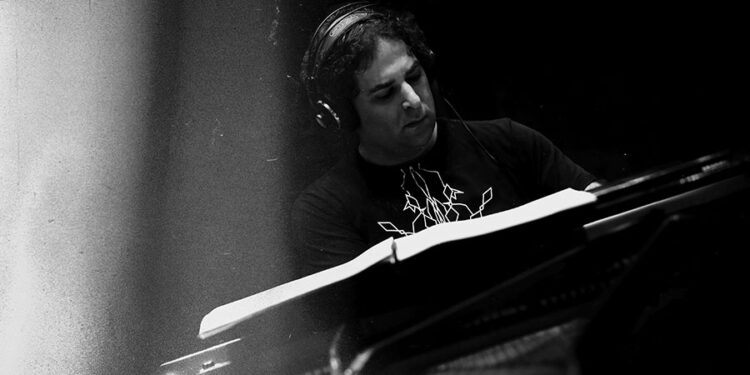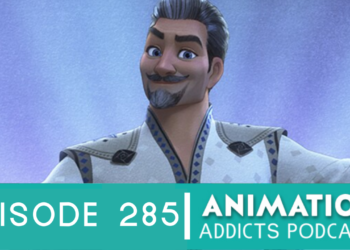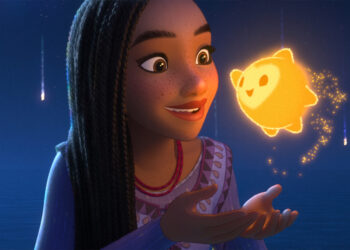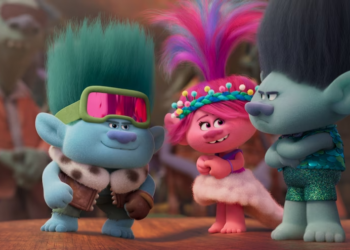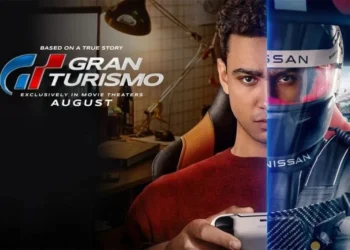Today at rotoscopers we are delighted to talk with composer Michael Yezerski who’s latest work can be seen on the new series for Netflix: Ivy + Bean.

Michael how did you get started on becoming a composer?
I started playing clarinet when I was like seven-years-old and then I taught myself the piano when I was nine. Then I started writing, like when I was probably about 12 or 13, I came home from music class one day and wanted to write a piece for all the instruments in my music, elective class at high school.
And I don’t know what compelled me. I still have no idea. If I think back to it, it’s like, why did I wanna write something? It’s just such an odd thing to do, but I did. And the rest is history, but I didn’t really get drawn to film particularly until later when I went to the Australian film, television and radio school. And that’s where, you know, ’cause I had just finished up a formal composition and music degree. And then, I was unsatisfied with that, and I went to film school and met all these fantastic directors and producers and writers and cinematographers. And I was like, nah, this is where I wanna be.
Did you have favorite composers that you particularly said you weren’t that into film as a young age, but did you have composers that you loved?
I know, I was always into film. I never really considered composing for film. I do recall that I went to see a revival of Star Wars with my dad, and this is just as I was starting the band auditions, and we walked out of it, and he said to me “what’d you think of the music? Wasn’t that cool?” And I agreed and he said “you could do that one day.”
Then I filed that away and never really thought about it until I saw the ad in the paper for the film music course at the Australian Film, Television and Radio school. I looked at it and sai “wow, maybe I can give this a go?”.
So you graduated from high school and then started then did this course?
No, I graduated from high school and then I actually did four years of an honors degree in classical formal composition music education at the time, at the university. So I was studying with a couple of Australia’s most acclaimed concert composers. One of them has unfortunately passed now, but I went for them and particularly to study with them. And came out of it with this very rigid and formal training, which I’m really proud to have. But at the same time, I still wanna know some practical elements. Like what can I do with it now?
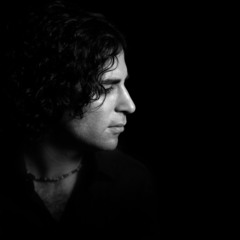
Were you thinking at that point, oh, I’m gonna do symphony, that kind of a thing?
I knew that I didn’t really want to be exclusively a symphonic composer. It’s a very tough competitive career, and not that film isn’t, it is as well, it’s I was looking for different avenues of what can I do with this education and with this love of music. And I think media composing, whether it was for film, television, advertising, any kind of drama or even the theater was appealing. I was looking for ways to get the music out into the world that wasn’t necessarily traditional.
Is it harder to write for episodic television than for film or they both have their own challenges?
They both have their own challenges. I think it’s the projects themselves that vary. So you can have a film that, it’s very easy, you just want some sort of ambient type sounds and nothing that’s really gonna intrude because the source music is doing all the heavy lifting in the film. In contrast, you might have a television series where you’re having to write in multiple genres, like Full Orchestra kind on a very, very tight timeline. On the other hand, like this project, Ivy + Bean, was three different films with three different kind of musical genres all recorded within the space of six months. Yeah, this film is constantly challenging, but that’s why I love it ’cause I get bored otherwise.
When you’re doing an episodic show, do you just hear from the director every week, “Okay, this is what we need. These are the beats that we need” or how does that all kind of work?
On an episodic show, most of the time you’re actually working with someone called the show runner. And so they’re sort of above the director…
So a director might say, “Hey, I would like this here and this here” and the show runner, not necessarily may disagree, but may sort of say, “well, actually I think this is a thematic moment because of something that happens in episode six. And we’re only in episode two, so maybe we could set up a theme here for the… ” they just keep an eye on the overall arc of the series. So of course, with the feature film or with the series of feature films, the director is the creative lead.
For Ivy + Bean, this seems like it has a young whimsical energy. What was that like to write for it?
I’ve been working with the director Elissa Down since her very, very first film in 2007, I’m showing my age now. And we have this kind of shorthand, I know her humor, I know what she finds funny. I know what kind of music she likes. She likes really, really catchy melodies. She likes sort of fun up beat energy music that doesn’t take itself too seriously, but can get really emotional when it needs to. And knowing that it sort of gives me a really great head start with any project that we work together on, because I already know the type of music that you’re gonna be attracted to. But so, you’re still trying to find the language for every single project.
Like the last film that we did, there were older characters, there were teenage girls, they were in their senior year of high school. So this is a lot younger. And so we were looking for a language that you could draw really strong themes out for each character, but had that sense of fun, danger, excitement, but also was able to move. So the first movie has more of an adventurous kind of sound. Second movie has more of a ghost, like almost supernatural sound. And the third one, leans into ballet and actually quotes from some famous ballets along the way. But the idea was to vary the sounds of the score, but like you say, keep it whimsical and fun.
Is it hard sometimes to know what instrument to use for different parts of the composition?
That’s a really good question. Especially when you’ve got an orchestra, and you’ve got so many instruments to choose from, what I find that helped, is just working with the pictures because you get the movie to look at and watch multiple times, and nowadays we have this incredible software that we can write, we can sort of pretend to play any instrument at all and put the sound up against the screen. And in fact, I’m a clarinet player, but I don’t really like using clarinet in my scores. I tend to avoid it, but on these films, these characters just ate up the clarinet, they love the clarinet. So I was like “more clarinet” and every time Elissa was like, “what’s that instrument?” I’m like, “it’s the clarinet” she’s like, “let’s have more of that”, clarinet everywhere on these scores, which is very cool.
Maybe because it’s tapping into your childhood and that’s what you played it as a kid?
You know what? There’s probably something in that.
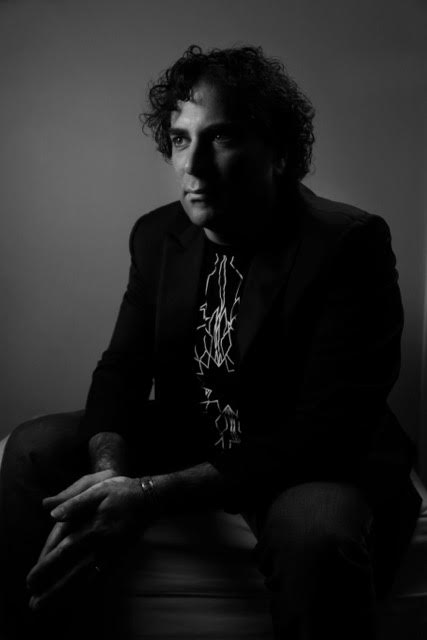
What advice would you give to people who wanna get into film music?
That’s also a hard question, ’cause things have changed so much nowadays. But it’s a couple of things: I would say, learn as much as you can about music, don’t go straight into composing for film. It’s really valuable to take the path that I did to study formal composition and not even think about media composing for a while. Learn as much as you can, go as deep into music history as you can, learn as much about contemporary music as you can, orchestration all those things first, before you even tackle film music.
I meet a lot of composers who have just gone into it too early. And remember that this is a socially driven career and you need friends and you need colleagues, who are working with you. You need to seek out young directors and writers and producers and cinematographers, and you need to work with them and you need to learn how to work with them, because the thing is, it is a collaborative medium at a time.
That makes sense. We’re really excited about the new series, the Ivy + Bean, so thank you so much for taking the time to talk with us, and it was great. Great, getting to meet you.
Yeah. You too. Thanks so much, Rachel.
Make sure you check out Ivy + Bean on Netflix and you can follow Michael on social media here.
For the entire interview:


